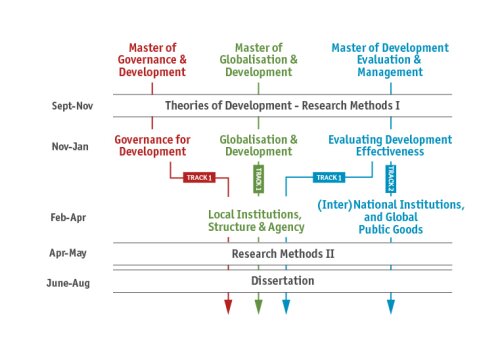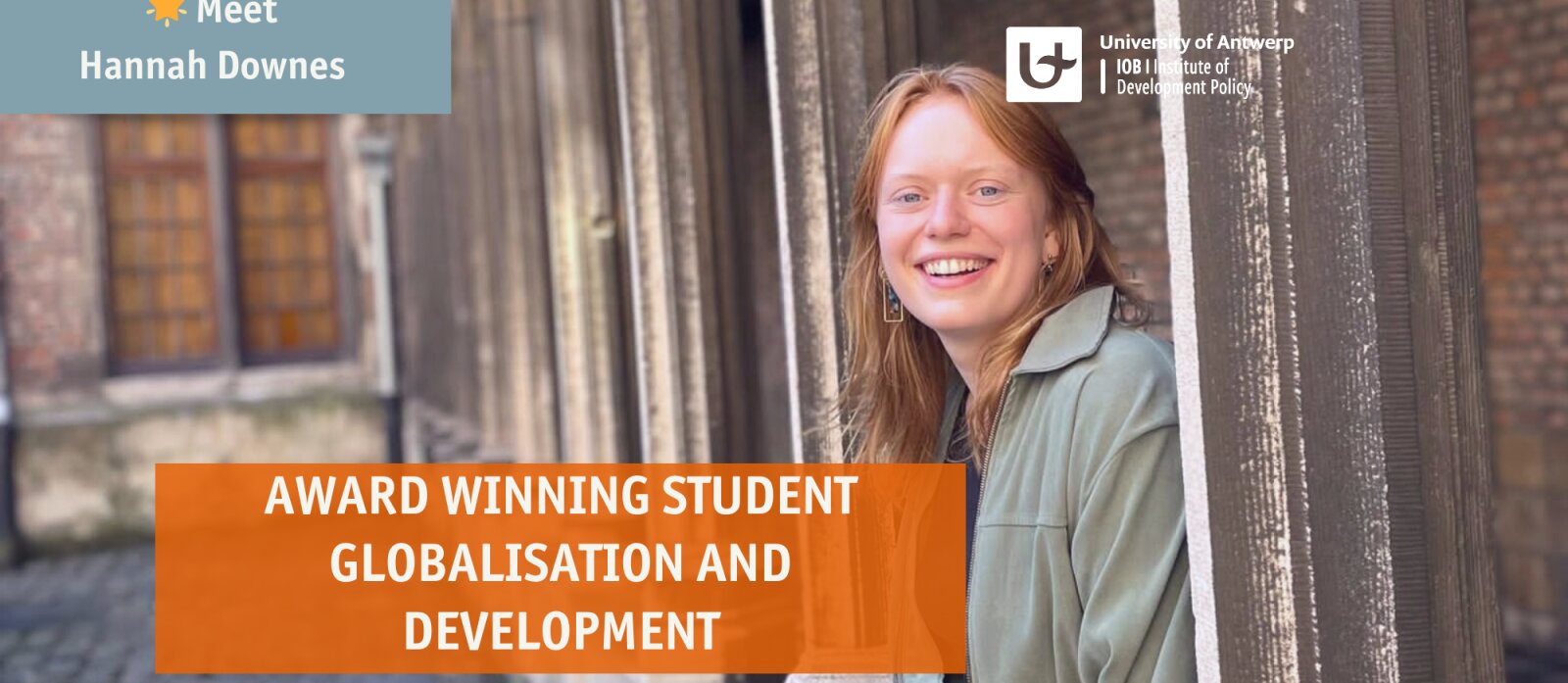- Do you lose sleep over issues like globalisation, climate change, migration, or global inequality?
- Do you want to make a real difference as a change agent at the intersection of global, national, and local policy arenas?
Our advanced Master's programme brings together passionate individuals from around the world to tackle the pressing challenges of global development. You will gain a comprehensive understanding of global markets, labour and migration, capital flows, and sustainable development challenges, while developing the skills to analyze policies, design interventions, and engage with diverse stakeholders effectively.
Programme overview

Theories of Development
This course introduces the major political, cultural and economic perspectives shaping development thinking. Students examine how politics and power, culture and agency, institutions and markets, and concepts such as poverty, inequality and well-being influence development trajectories. Across four thematic units, you gain a multidimensional, critical and decolonial understanding of development and its determinants.
Research Methods I
Research Methods I provides the foundations of knowledge production in development studies. Students explore key research paradigms, learn to critically read and assess academic work, and reflect on ethics and positionality. The second half of the course focuses on research design, introducing both quantitative and qualitative approaches, sampling strategies, measurement, and questions of validity and reliability.
Globalisation and Development
This course explores the historical and contemporary dynamics of globalisation and their impacts on development. Students examine how the flows of people, goods, nature, and capital shape economic, social, and ecological outcomes, critically assessing opportunities, risks, and power relations. Through thematic subunits, they analyse labour and migration, trade and global value chains, environmental governance and extractivism, and financial globalisation, drawing on empirical cases, theoretical frameworks, and critical perspectives, including decolonial approaches. The course combines lectures with group work, where students tackle real-world global challenges, producing reflective portfolios and creative outputs such as videos or podcasts.
Local Institutions, Structure & Agency
Focusing on the local level, this course explores how everyday institutions, norms, power relations and collective action influence development processes. Topics include gender, local governance, migration, community-driven initiatives and citizen-led accountability. Field-based components—such as community monitoring in Tanzania or the Justice Co-Laboratory in Antwerp—allow students to apply concepts in real contexts.
Research Methods II
Research Methods II offers applied, hands-on training through a modular set of quantitative and qualitative units. Options include data handling, descriptive statistics, regression and causal inference; qualitative interviewing and fieldwork design; discourse analysis; NVivo-based data analysis; and transformative methodologies such as participatory, feminist and decolonial approaches. An optional research stay in Tanzania or the DR Congo provides immersive field experience within ongoing research projects.
Master Dissertation
The programme concludes with a written dissertation, defended orally, allowing students to apply theoretical and methodological skills to a governance and development issue of their choice.
Examples of topics studied
- How global trade agreements (e.g., WTO policies) impact developing economies.
- The effects of climate change on migration patterns (e.g., climate refugees from Bangladesh).
- The influence of multinational corporations on local labor markets (e.g., garment industry in Bangladesh).
- Global financial crises and their impact on poverty in developing nations (e.g., 2008 crisis effects on Latin America).
- Policies for reducing economic inequality in a globalised world (e.g., universal basic income experiments).
Real-world applications
- Development Economist → Analyzing trade policies and their effects on poverty reduction.
- Migration Policy Expert → Designing policies to manage international labor migration.
- Sustainability Consultant → Helping businesses implement fair trade and sustainability initiatives.
Example career path
A graduate could work at the International Monetary Fund (IMF) or World Trade Organization (WTO), analyzing how international trade policies impact economic growth in Africa.
